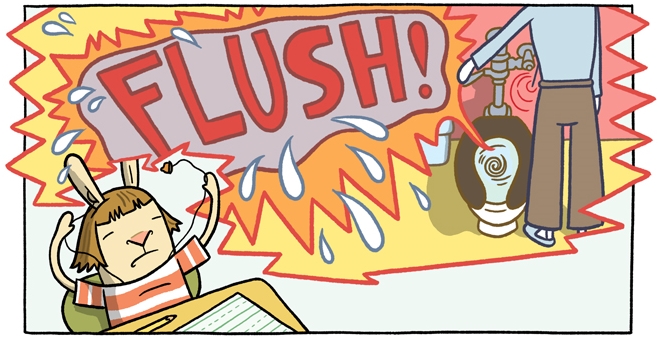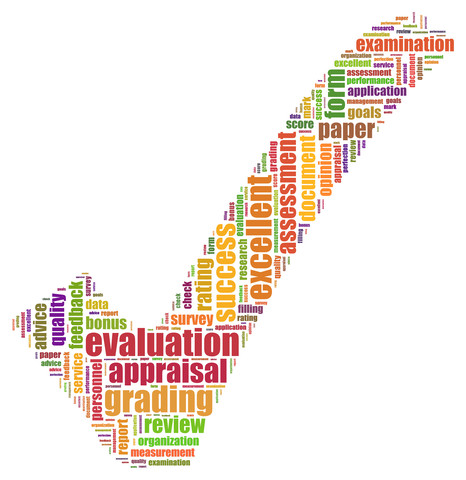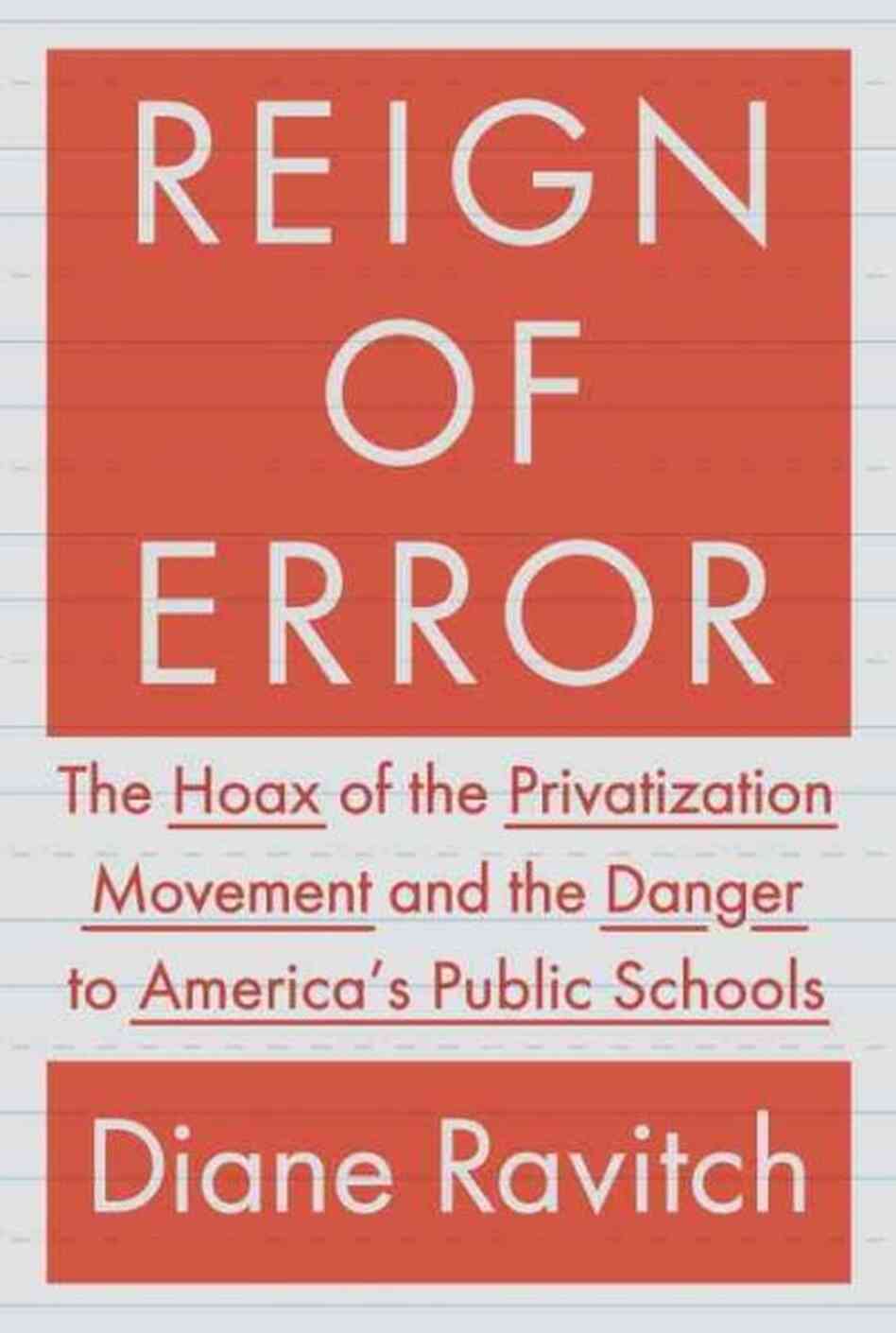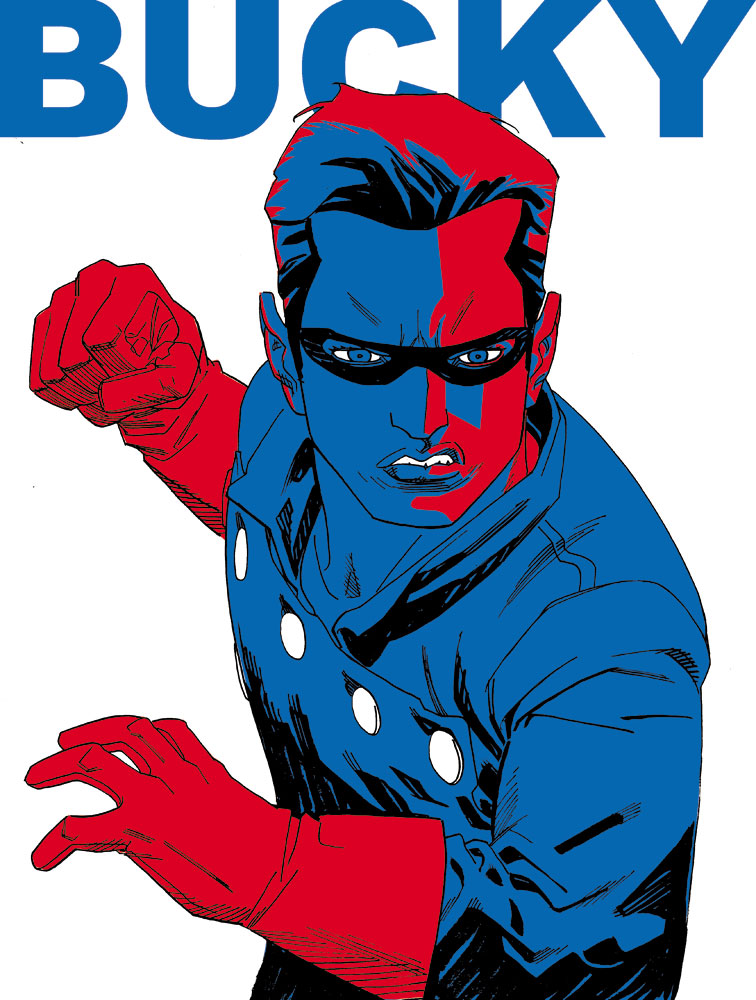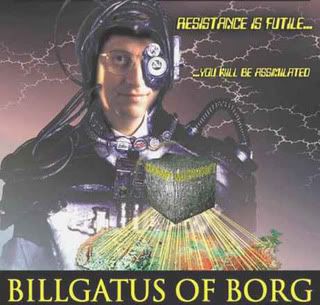As any good little boy and girl in academia must do nowadays, I spend a lot of time thinking about the construct of white privilege. Recently, I've been reflecting on what it means to be a professor (albeit untenured and currently Visiting) who is white and from a working poor background. Or, perhaps, more accurately, what it means to be a doctorate who is white and from a working poor heritage, because we are no longer in the reality where a Ph.D. equates to tenure streamed positions for many, and stories of working poor Ph.D's are getting much attention (well, notice, anyway).
As well, I keep thinking of the other poor white kids I grew up with in my hometown, in the foothills of Appalachia; I think about the K-12 school in the mountains of North Carolina where I completed an internship and the students served in poor, rural areas; I think about Chris Rock talking about how scary poor white people can be and how his mother used to consider folks who were both white and poor and think there was "no excuse for that." Rock says being white in America is like always having $5 in your pocket. Being black, he says, is like always being fifty cents short. No word on his (or his eponymous character's) thoughts on the rest of the color spectrum, I guess.
So, I decided to Google "does white privilege undermine white poverty?" Part of my motivation is because I do wonder and worry that it might be a reality that so many academics, even white academics, are so adamant about acknowledging white privilege and whitewashing all white people as advantaged in the same way, and to the same extent, because in their lived experienced, they've never seen or experienced white poverty as a tangible realness. Most professors come from middle class backgrounds or "higher," after all. And while volunteering at the soup kitchen is admirable, it's not the same as knowing persistent hunger.
Now, let me clarify my position on white privilege:
I acknowledge white privilege and even acknowledge that there have been times in my life when it must have helped me and it probably helped me more times than I'll ever be able to know and recognize. This fact does not preclude the fact that I have experienced discrimination, racism, prejudice, and other forms of othering and poor treatment.
What I do not accept is the idea that white privilege exists for all white people all the time to the same degree all the time for all whites always. Sure, perhaps white privilege is "always, already" there for the accessing, but that doesn't mean it is accessed or abused equilaterally.
So, the first substantive Google result led to a PDF of a presentation entitled "McIntosh as Synecdoche: How Teacher Education's Focus on White Privilege Undermines Anti-Racism."
Oh, yeah, if you didn't know, currently I'm an English Education professor (well, VAP). Certainly my field and the broader field of education is digging into the construct of white privilege and how it relates to social justice, critical pedagogy, multicultural pedagogy, etc.
Anyway, you gotta see this thing. It details an autoethnographic study about whiteness, identity and privilege and claims that Peggy McIntosh's widely-accepted notions in "White Privilege: Unpacking the Invisible Knapsack" can be dangerous if applied without a critical edge.
Indeed, a lack of critical edge is part of my problem with how white privilege gets played out in lived academic spaces. It's as if we must acknowledge how white privilege helps us critique power structures and reveals inequities and inequalities, but the concept of white privilege itself must never be questioned, for fear of one being labeled closed-minded, or, worse, racist.
The authors argue that confession is a large part of white privilege pedagogy:
"[W]hite privilege often takes on the role of being a “Racism Detection Device” (RDD)—it acts as a test or screen to identify those who will not confess their privilege and who are therefore racist. Those who resist might be asked again, be given another chance to confess, but if they continue their resistance they have shown their true selves."
So where would that leave someone who does not accept the idea that many academics seem to hold that
white privilege exists for all white people all the time to the same
degree all the time for all whites always? And is willing to say it? I worry it leaves such a person in a precarious place. But, perhaps those are selfish concerns. I'm willing to state that too.
The recommendations of the study are two-fold: 1. Scholars, particularly those in Education, must "re-conceptualize white racial identity in ways that are generative for anti-racist teaching." I think doing this would not eliminate white privilege from the discussion, but it might allow an acceptable space for the critique of it as yet another social construction (as are race, poverty, and gender roles).
Secondly, the authors espouse "the need to displace white privilege from the center of anti-racist work in teacher education, and to focus instead on dismantling white supremacy."
Yes. That is the real issue, isn't it? Not some carpeting notion of white privilege as omnipresent and equally distributed. A focus on white supremacy could engage in all of the arguments associated with white privilege but also acknowledge class and economic advantages within and among whites and all people, really.
One might argue focusing on the dismantling of white supremacy still privileges white power. Well, they're not calling it just "privilege," either, are they? Yes, irony of ironies: White Privilege privileges Whiteness, albeit via a narrow, restrictive definition. White Privilege privileges white privilege.
Regarding education studies, perhaps a focus on dismantling white supremacy would remove a perceived need for statements like this:
"It's a sad irony that, while the majority of teachers and students in colleges of education are middle-class White females, schools in America's inner cities are populated by increasing numbers of African-American and Latino youth."
That line is from a major ELA methods textbook. I will not name it nor its authors, because deep down I want to think they mean well (and their bodies of work prove it) and that the sentence is just poorly constructed.
I feel the sentence offers evidence of just how far off-base and dehumanizing an over-arching acceptance of white privilege as fact can be. Is it really ironic that people might want to help people? Even as the sentence critiques the overabundance of white females, it still privileges whiteness (and gender) over the fact that those white females are just as human as the students they want to serve. It completely whitewashes -- in favor of field-accepted, engrained notions of multiculturalism and cultural responsiveness -- people who may truly seek to make a positive impact in the lives of other people. It sees the race and gender as primary, humanity as at least secondary.
Is it unfortunate that there are not more people of color in the teaching field and that young people in urban areas might not see as many role models or people who they can say "look like us and share our heritage" as they need? Sure, though acknowledging that fact should also acknowledge how all races, all people, can privilege skin color when making impressions about the worth and merit of other people.
Wouldn't someone who accepts that sentence, as written, in a wholesale manner actually be guilty of racism (assuming that one can be racist toward white people. I know some argue that can't happen. I don't agree). Or, at the very least, of some Alanis Morissette-esque denotative liberties?
On the other hand, thinking about restructuring the sentence with white supremacy in mind could at the very least keep all the white middle class women reading it from feeling guilty or unworthy or unable to help their fellow humans. Such restructuring could also account for class differences within and among constructs of whiteness and throughout all constructs.
How might this tie to comics, the supposed focus of this now oft-neglected blog? A few days ago, I allowed myself to be baited into a conversation about the Gene Demby article "Who Gets to be a Hero?: Race and Identity in Comics." Ain't Facebook grand? I removed myself from the conversation, but its specter has been gnawing. Demby talks about the X-Men series, known for tackling issues of social inequality, in particular and offers critique of its privileging of white superheroes. Demby informs that artist "Orion Martin noted that the
X-Men comics have on the receiving end of much real-life discrimination: the main lineup in the
X-Men team has been mostly straight, white dudes." So, Martin recolored some of the characters to help us ask ourselves how much color mattered in terms of who is super, super-good, and super-evil.
Demby's article and Martin's project both shortchange the X-Men series and are woefully ignorant about its place in comicsdom and society. The X-Men were one of the first culturally-diverse group of superheroes in comics. No, not the original 5 from 1963, but they were never that relevant either, stars of a B-list title at best. When the All-New, All-Different X-Men appeared in the 70s, part of its appeal was its inclusion of people from different ethnicities, races, and nationalities. Further, while many groups have tried to appropriate the X-Men as representative of them and their trials and tribulations and there's only, they stand in as metaphorical representations for all who have felt oppression.
Furthermore, the message of the X-Men is one that scholars, perhaps especially those who embrace white privilege uncritically, might just be too scared to acknowledge:
There are aspects of human nature -- not Caucasoid nature or Negroid nature or Mongoloid nature (Oof! Those words were hard to write), but human nature -- that allow for a level of hate that transcends race, transcends nations and ethnicities and genders. To wit: Most violent crime is intra-racial, not inter-racial, right?
Yes, X-Men comics privilege whiteness and usually even traditional standards of beauty, but most of its villains are white and some of its heroes are people of color. The X-Men's message is that humans hate, and terrible things happen when humans hate. The X-Men remind us that hate can be constricted to color or class, but it can just as well be color-blind, all-encompassing; completely blinding, in fact. Consider how folks sometimes talk about blacking out from anger or seeing the "red mist."
Within this example, as seems to happen so often, we see an author and artist so caught up in the "reality" of white privilege and what acknowledging it allows us to critique, that they privilege white privilege to the expense of seeing the bigger picture. Hence, they rush in to a project with blinders on, misinterpret the source material, and critic of the critic beware because so many are so eager to see/privilege white privilege everywhere and to acknowledge someone who may be "crying reductivist wolf" as brilliant and forward-thinking and those who point out cracks in the argument as inevitably, completely, irrevocably racist simply because they see more at work than white privilege. Maybe those folks even see the white privilege at work, but they acknowledge other complexities as well.
Deconstructing the white superiority in the X-Men comics, however, helps us ask why Anglo characters are so often the most powerful or the accepted leaders, whether they be heroes or villains. It opens up discussions tied to marketing and media literacy: Why did the X-Men have to be mostly white? And why do most of them meet stereotypical notions of beauty? How does the series treat those who do not, and what can that tell us about ourselves, what we like to see, and what we like to buy/buy into?
Also, it can be encompassing enough to ask what other power structures are at play. Would any of the X-Men listen to a Charles Xavier who tried to recruit them to live in his two-bedroom double wide trailer, which was the best he could do? What is the class distribution among members as well, and do gender and socioeconomic assumptions seem to affect how the characters interact with one another? Are all the villains simply poor people trying to make ends meet through illegal activities? Or are they privileged through race, wealth, etc.?
Indeed, such an approach is better suited to ask and answer the question "Who gets to be a hero?" My guess is anyone who really delves into that discussion will interact with constructs that address white privilege but will not privilege it by keeping it at the forefront and making it the "catch all" reason for every action and instance of inequity.
Maybe I'm engaging in self-destructive behavior here. Maybe I've been too jaded by my own experiences where academic peers have accepted the racist, sexist, prejudiced notions of colleagues using white privilege to advance their own discriminatory agendas in some sort of warped sense of justice, feeling as if they, even if they are white, or white and male, are part of the good fight to make real transformative change in the fight against white privilege by advocating said colleagues' ideas. (I'm thinking of you, UTEP).
Pfft. There may be a reason Foucault isn't as popular in certain academic departments anymore: Maybe he hits too close to home. Replacing the players is not the same as changing the game; not always. All those with power -- now and in the past -- have stood on the skulls and backbones of others - and othered others -- to wield it. There is no privilege of any kind without a trade off that favors the few and discounts the many.
Hell, maybe we don't need to study white superiority exclusively either. Sure, white people have been pretty dominant and domineering over the last seven hundred years or so, but the planet is far older than current notions of white privilege or white supremacy, and if Derrida is to be believed, all the traces of all the cultures and all those oppressed and those once in power are still with us, influencing us and rattling our bones. Maybe dismantling white supremacy still privileges whiteness too much and what we really ought to do is dismantle supremacy in and of itself. Perhaps that is too socialist a suggestion for academics. Perhaps it is impossible. Naive. Threatening?
Certainly I could be making myself a target for professional erasure or for being dismissed as racist and/or as unstable for sharing these thoughts. One could argue that admitting something that goes against certain academic grains, especially those assumed progressive, is in of itself a stupid thing to do: "Sure, have your ideas that run counter to current guiding notions, but, for goodness sake, keep your mouth shut!" One might argue that more folks should "show their true colors": "Keep talking so we know exactly how to make you disappear!"
Certainly I can do more reading on the concepts of white privilege, and of white supremacy as defined by the authors of the "McIntosh as Synecdoche" article. I'm eager to read this ubiquitous "Knapsack" article as well as an article they cite entitled "The Color of Supremacy: Beyond the
Discourse of ‘White Privilege.’"
I need to do more research about the study's researchers as well. They say they are part of the Midwest Critical Whiteness Collective, and no date is given in the PDF. For all I know, they're a group of scholars who have bleached their doctoral robes and put conical cardboard in their doctoral hoods so they are all pointy when worn over their heads. Maybe they've been pressured out of the academy.
I've got a lot more thinking to do, but I feel a sense of relief, a release of anger, of guilt, even, at knowing I'm not the only academic in Education who worries that privileging white privilege is skewing critical thinking and critical, transformative social justice action rather than really working to solve problems for all people.
Do I feel a release of fear, though? No. The lure of righteousness is great for anyone, even academics. And it is just so easy to throw stones. And so easy to engage in the popular thing and to label those with varying worries as racist, as stupid, as lacking career/political savvy, as unstable -- as other. There's clawing to the top and an instinct to kick away the aberrants, to make sure the odds of you and your ideas are ever in your favor, even if that means skewering one who stands as Tribute.
Ugh. I'm mixing metaphors and cultural referents, probably too influenced by that great piece floating around about academia and
The Hunger Games, but what was it I said the X-Men tell us about othering? And hate?





